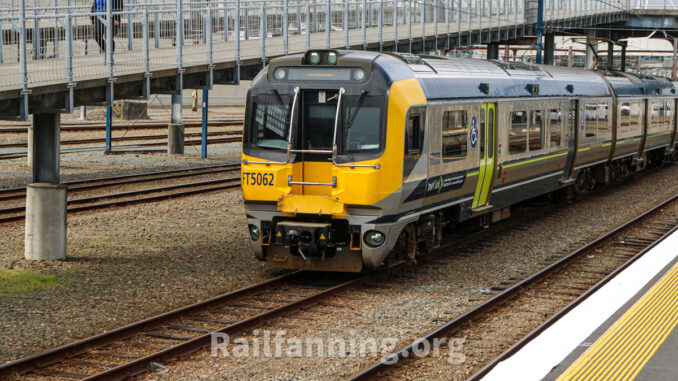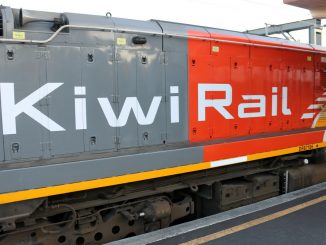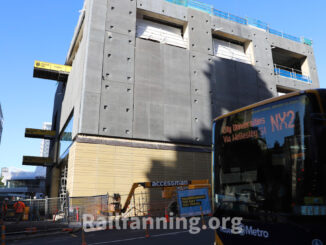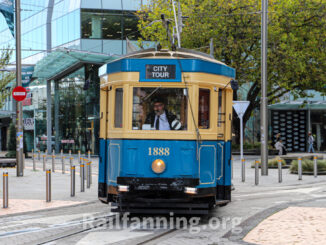
KiwiRail and Greater Wellington Regional Council are taking a two-phased approach to fix carriage vibration issues in the Wairarapa following the completion of an independent investigation.
KiwiRail General Manager Metro’s Jon Knight says that with the Wairarapa fire ban now lifted, grinding the tracks will be the first phase of work.
“I appreciate how frustrating it has been for Wairarapa locals since we put speed restrictions in place last year to manage these vibration issues, which resulted in longer journey times,” Knight said. “Now that we have a good understanding of the factors contributing to the situation, we are moving as quickly as we can to resolve them and lift the speed restrictions north of the Remutaka Tunnel.
“The vibration in the Wairarapa are caused by issues with how carriage wheels are interacting with the rail. Grinding the new rail with our specialist machine is our first step to fix the problem,” Knight added. “We will have our grinder in Wellington to start work on 26 May.”
Grinding the 40km of track between Featherston and Masterton will be done at night, when passenger trains aren’t running, starting in the areas with vibration issues. The total distance should take about eight weeks to complete.
“Grinding is a standard maintenance practice and it should help the track and carriage wheels fit better together,” Knight asid. “It’s something we have been planning to do for months but, given the amount of sparks grinding generates, the summer fire ban in the Wairarapa made that impossible. With the ban lifted, we can now get our grinder down to Wellington and get the work done.
“We will then be able to re-test for carriage vibrations at a range of train speeds,” Knight added. “If this is not enough to resolve the vibration issues, we will move to the second phase and work closely with the Council to have the wheels of their 18 Wairarapa carriages reprofiled. KiwiRail will make our facilities available, if they are needed.”
KiwiRail is in the middle of a $870 million upgrade of the Wellington rail network, to enable more reliable and frequent trains. $375m is being spent in the Wairarapa alone, including work to prepare it for the council’s new hybrid trains.
As work is completed, KiwiRail officials said they will be able to remove more speed restrictions and further reduce passengers’ journey times.
The investigation into the Wairarapa vibration issues, undertaken by Beca, recommended rail grinding and reprofiling the wheels of the Wairarapa carriages as the key steps to resolve the vibration issues. Reprofiling of the carriage wheels requires each wheel to be placed on the lathe machine and the shape of the wheel changed. Reprofiling of all wheels is currently being planned, but will likely take place over several months. The carriages will have to undergo strict testing to make sure no further issues are introduced.
Metlink Group Manager Samantha Gain said a plan is in place to ensure a long-term solution for the Wairarapa vibration problems and improve commuter reliability.
“We acknowledge our Wairarapa passengers are inconvenienced by the speed restrictions and we’re working hard to improve their services,” Gain said. “We’re confident we can fix the vibration issues. The track is new and made of modern materials. Grinding will reduce the risk of track faults in the future, help reduce wear and tear on the Wairarapa carriages, and we hope will reduce the vibrations.
“Several of the Wairarapa carriages’ wheels will have been reprofiled by the time the rail grinding is finished,” Gain added. “It will mean further testing can begin straight away and we will quickly know if the remaining carriages need to have their wheels reprofiled, or whether grinding will be enough to lift the speed restrictions. If we do need to continue reprofiling we will do this as fast as possible.”




